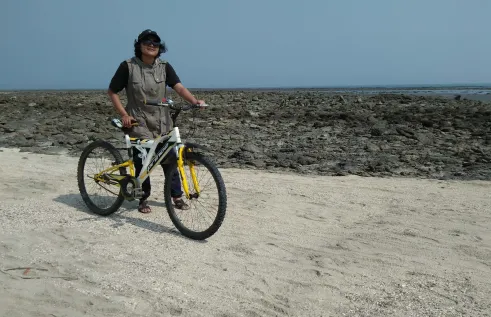Future study
How much does uni cost?

Your desire to study doesn’t have to be held back because you think you can’t afford it. Knowing what it will cost empowers you to stop procrastinating and confidently pursue your goals.
How much does uni cost? It’s time to remove the mystery about study expenses, find out what to budget for, and look at options to reduce your costs.
Plus, you can explore your options for getting financial support for your studies.
Course fees
This is the largest expense when studying. A course is broken down into individual units or subjects that each have a fee associated with them.
Course fees are calculated differently depending on whether you're studying a higher education degree or vocational education and training (VET) course, also known as a TAFE course.
A three year degree normally consists of 24 units, with the tuition fee for a standard unit ranging between $800 and $1300 (AUD) for Commonwealth-supported students and $2,200 and $3,100 for full fee-paying students. These fees are invoiced per semester based on the number of units enrolled in. For example, if you study four units full time, you will be invoiced for four units per semester.
If you're considering a VET course (also known as a TAFE course), the total cost of your Certificate or Diploma course is also calculated by how many and which subjects you choose. Find out more.
There are a few different options for handling the expense of course fees:
- Pay the fees in full each semester.
- Defer paying through a loan from the government. Find out more about HELP loans for higher education courses and VET Student Loans for VET courses.
- Check if your employer offers educational or professional development reimbursement schemes.
- Consider applying for a scholarship. There are many categories and you may be eligible to apply.
Textbooks
The majority of units have an assigned textbook you’ll be required to read. The cost of books can be expensive, often ranging from $100-$200. But there are great options on how to manage this expense:
- Buy them new from the university bookshop: you can pick them up or have them mailed to you. The CDU Bookshop has a rewards program where you get 10 points for every $1 you spend (excluding any shipping fees & shipping taxes). Once you reach 2,500 points you get a 10% discount on your next purchase. You must purchase your books online, but can pick them up in store.
- Buy them second-hand: there are websites where students can re-sell their textbooks, as well as places on campus.
- Online textbook suppliers: search different websites for the best price. Make sure to check it’s the correct edition and you consider the postage fees.
- Borrow from the library: This is a free option but it comes with a few warnings. You aren’t guaranteed to have access to the book all semester. If it’s required by someone else, you may need to return it, or there may be limited copies and you may miss out.
Standard and special equipment
Your course may require special equipment such as calculators, medical or scientific equipment. You will also need a computer, access to the internet, a printer and stationery.
You may also want to invest in a good bag to carry your laptop and books if you study in different locations or have to travel for residential schools.
A bit of planning can go a long way in managing this expense.
- Start organising early and see what you already have on hand.
- Consider second-hand equipment or online suppliers.
- Make the most of back-to-school, end of financial year or post-Christmas sales for better prices on stationery and equipment.
- Be frugal in your stationery, but make sure to have something special that makes study more enjoyable – such as a nice planner, calendar, pen or highlighter.
Placements
If you study online, there are some courses (such as engineering and nursing) that require you to attend intensive on-campus practical teaching sessions. They are normally held in the mid-semester breaks for one week. If you study full time it will be once per year. It’s a great time to apply your knowledge as well as to meet lecturers and other students.
You’ll need to:
- Organise accommodation, food and transport for this week. Unis often have on campus accommodation packages.
- Arrange time off work (book study leave or annual leave).
- Consider family care and other commitments you may need to rearrange.
Work experience or internships
You may be required to do practical work experience at your own expense for courses such as education and nursing. It may require changing your work schedule or taking vacation time, as well as changing your family’s routine or child care needs. A bit of pre-planning can reduce the stress and help you focus on the opportunity of this learning experience.
If you'd like to discuss the cost of studying at CDU, reach out to our Student Central team. They're here to help!
Related Articles

Showkat's making the most of online study
Because of travel restrictions, international student Showkat Ara Khan is studying online in her home country of Bangladesh. While she can't be on campus, she’s still making the most of her time online with CDU.
Read more about Showkat's making the most of online study
The "magic potion" for a new life: Yuliia's story
When Yuliia first moved to Australia from Europe, she was forced to overcome many challenges. It was studying at Charles Darwin University that gave her a new lease on life and helped her to regain her confidence in the workforce.
Read more about The "magic potion" for a new life: Yuliia's story
8 real-life, practical tips for making online study work
From finding time to finding your tribe, seven online students at CDU share their insider tips on to make online degree work for your life and goals.
Read more about 8 real-life, practical tips for making online study work